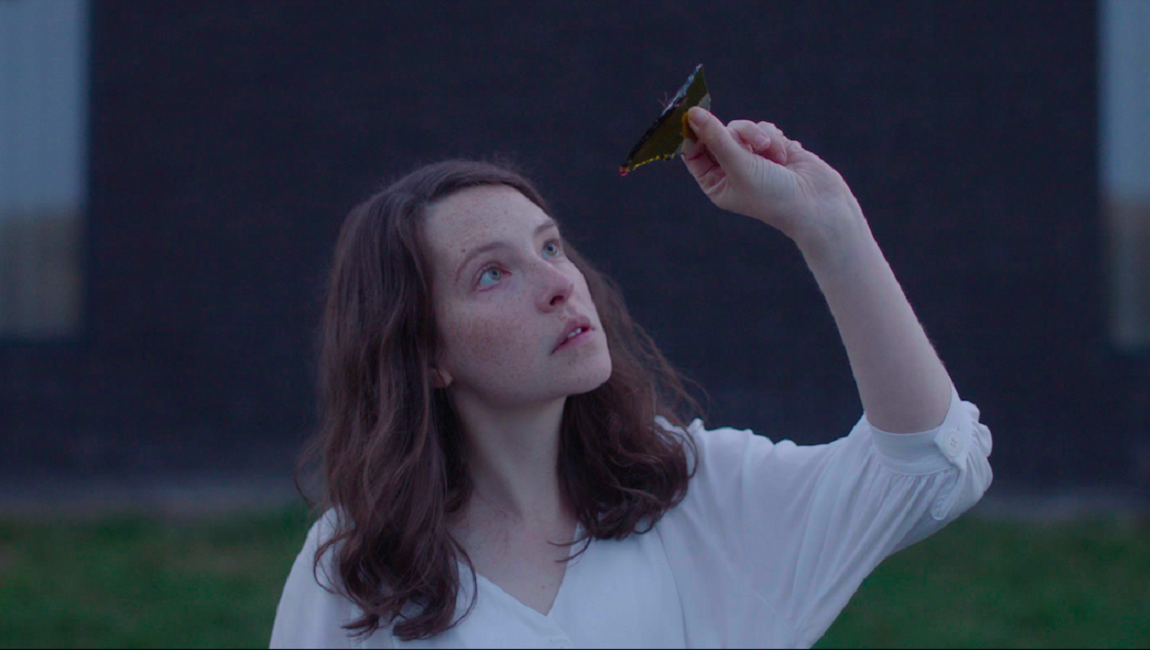Not that every filmmaker is expected to prove their unique vision upon signing their directorial debut, but French-Greek actress and dancer Ariane Labed, unfortunately, had to deal with two preconceived associations that tend to limit her Un Certain Regard contender September Says to easy categorizations: one, having major breakout performances in what today is known as the Greek Weird Wave films; and two, being married to Yorgos Lanthimos, who, despite being overtly discontent with the qualification, is considered its main representative. Adapted from Daisy Johnson’s 2020 novel Sisters, September Says manages to distill the intuitions and sensibilities from films like Dogtooth or Attenberg that are relevant to the story’s otherworldly atmosphere and transpose them to the genre of psychological gothic. There are gestures, mannerisms, or postures that echo certain mise-en-scènes from Greek Weird Wave films, but unlike characters who lack a moral compass and are subjected to social and existential alienation, Labed builds her protagonists’ psychés on teenage angst and trauma responses.
September Says begins by introducing two teenage siblings, September (Pascale Kann) and July (Mia Tharia), who have to deal with covertly racist bullying — the girls are of Indian descent, and July, especially, has a darker skin tone. We learn that their father passed away a long time ago, and they were raised by their single mother, Sheela, who works as a fashion designer. The opening sequence finds Sheela dressing little September and July as the Grady sisters from The Shining, before the film then jumps to the present, with the two dressed again in matching nightgown-like dresses — this time a bit reminiscent of the infamous dance scene in Dogtooth.
In their sibling dynamics, though born merely 10 months apart, September proudly assumes the role of the older sister, fiercely protecting her “silly July-bug” against any aggressors. She exudes a feral energy, with throaty snarls and piercing eyes that signal danger to anyone who might threaten them. July, on the other hand, is the quiet one, overshadowed by September’s larger-than-life persona, her hunched posture suggesting a lack of individuality and agency. When September asks, seemingly already knowing the answer, “If one of us had to die and we could choose which one, would you die in my place?”, July quietly responds: “Yes, of course, it would be me.”
Theirs is a dysfunctional but also strong sibling relationship, built on a power play — play in the literal sense, as their respective domineering and submissive behaviors are perceived as a game; this can be seen in moments when July “loses a life” if she doesn’t comply with September’s directives. However, to September’s dissatisfaction, July has a penchant for social connection; like many teenagers her age, she wants to be seen and liked. When one of the boys in their class seems to take a liking to her, July’s burgeoning hormones take control, leading to a publicly humiliating moment that prompts September to take matters into her own hands.
Following the novel’s structure, Labed leaves the pivotal event that occurred at school off-screen and cuts directly to its aftermath. Sheela and her daughters leave Oxford for their grandparents’ country house in Ireland, and although we don’t learn the specifics of what happened at school, a palpable tension and grief hang heavy in the air. Sheela, already portrayed as oblivious to her daughters’ inner worlds and interactions, isolates herself, claiming she needs some time alone. Bettina Böhler’s editing, known primarily for her work with Christian Petzold, alternates between Sheela and the girls, beautifully capturing the emotional distance that separates them, despite sharing the same physical space. Unlike in a book narrated through a first-person POV, cinema struggles to capture the gaze of an “unreliable narrator.” In the film’s second half, Labed addresses this challenge by employing subtle visual and narrative devices that gradually transform the objective-looking world into July’s shattered, haunted, trauma-laden subjective reality. However, when contrasted with the well-paced, uncanny buildup, the final act’s climactic denouement feels unfortunately rushed, serving more as an unnecessary logical explanation for the audience than as an emotional restoration moment for the characters
On an aesthetic level, September Says has an out-of-time quality, yet it also has a vein of the vintage thanks to its analog texture, similar to the eerie and cozy feeling that characterized the visual realm of Céline Sciamma’s Petite Maman. Cinematographer Balthazar Land, who Labed also worked on Olla, conveys a warm, familiar atmosphere in his images, one that reminds us, despite all the bleak and odd machinations that the two girls indulge in, love and instinctive connection are what really bind them to one another. Kann and Tharia give terrific and well-grounded performances as September and July, their unique physicality and speech habits elevating the characters into three-dimensional individuals — a rare asset that most oddball supernatural genre films, which September Says will probably be counted among. Such films too often value concept over emotion and sterile provocation over sincerity, a mistake Labed savvily avoids to her film’s considerable benefit.
Published as part of Cannes Film Festival 2024 — Dispatch 3.







